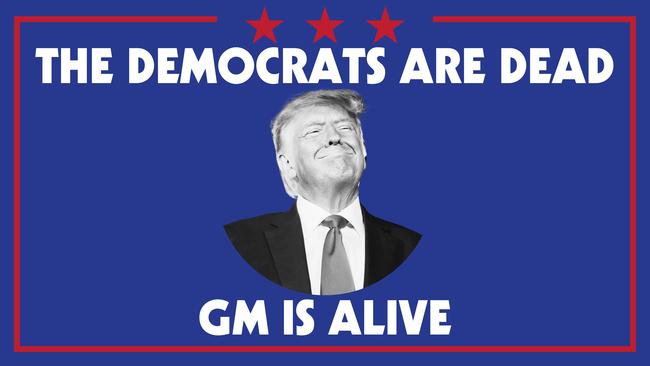
It is now the left that’s attacking carmakers (ask a Tesla driver) and Donald Trump who has in his corner the workers that the Democrats forsook for wokers (ask Brian Pannebecker, the former Michigan autoworker who Trump backslapped on stage). American politics has slowly and then suddenly been turned on its head.
The President was in his element. He has rarely seemed happier. He read from his autocue and he riffed. Unionists, autoworkers, farmers, the builders and makers of things, applauded him. The defection of these men and women from the Democrats, who forgot how to speak for them, to Trump, who learned, completed the picture. An American politics realigned. A president imperious.
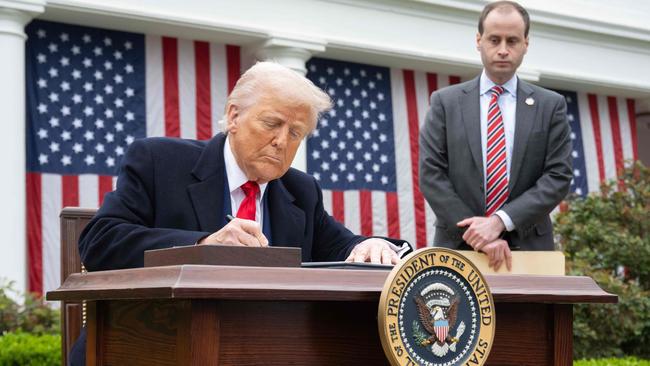
His 48-minute “Liberation Day” speech may go down in history as Peak Trump. He seemingly commands all he surveys. His opponents are reduced to long, windy speeches on the Senate floor. Elite universities are chastened. Foreign nations plead for redress. As a display of confidence and power, Trump’s performance was hard to match. Peak Trump? Perhaps. Pure Trump? One hundred per cent.
For a man with documented chaotic tendencies, Trump has maintained one pristine line throughout his adult life: foreigners are ripping us off. On Wednesday, Washington time, he announced America’s liberation from this racket. Its economic prospects are not certain – and probably quite gloomy. But its symbolic power is significant.
We saw a fulfilment of a world view that Trump has held for a long time. If you want to understand the genesis of Liberation Day read his interview for Playboy magazine in 1990, when he was 43.
Asked how he felt about Japan’s economic pre-eminence, Trump answered: “Japan gets almost 70 per cent of its oil from the Persian Gulf, relies on ships led back home by our destroyers, battleships, helicopters, frogmen.
“Then the Japanese sail home, where they give the oil to fuel their factories so that they can knock the hell out of General Motors, Chrysler and Ford. Their openly screwing us is a disgrace. Why aren’t they paying us? The Japanese cajole us, they bow to us, they tell us how great we are, and then they pick our pockets. We’re losing hundreds of billions of dollars a year while they laugh at our stupidity.”
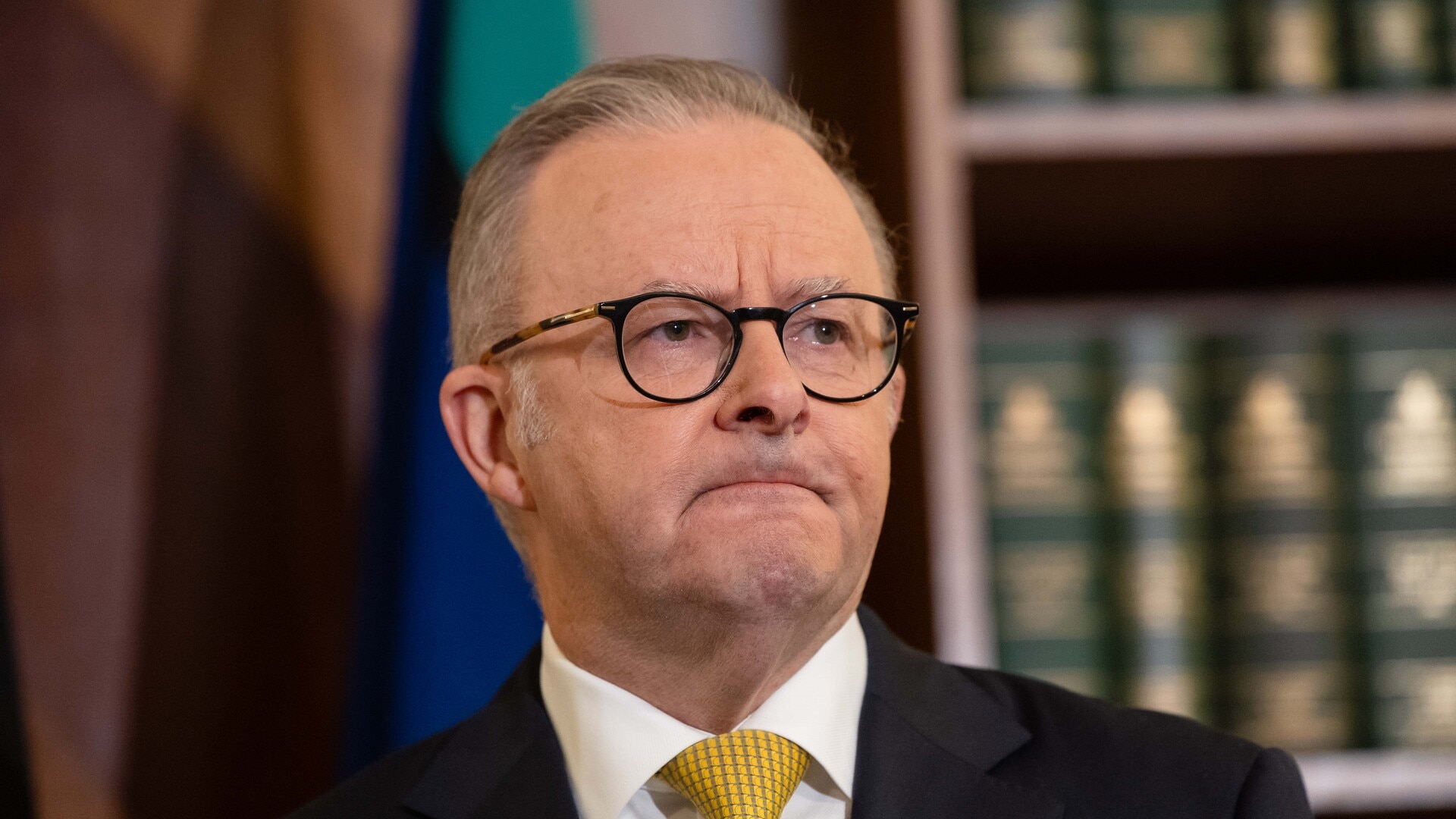
Swap out Japan for the EU, China, Mexico, even Canada, and the interview is a draft of what he delivered on Wednesday. Indeed, the defenestration of industrial America in the decades since 1990 gives him a certain prescience: if we don’t put America first, national decline is certain.
Economists are busily scorning the logic of Trump’s reciprocal tariffs. These dismal scientists seem united that tariffs cannot restore his nation’s manufacturing base. But his command of the politics and culture of his trade war was the story here. And it is on this basis that we need to assess him.
At home, his 2½ months in office have revealed a remarkable activism that will be hard to sustain. He has issued more than 100 executive orders – to Joe Biden’s 37 at this same stage in his presidency. He retained two seats in congress on Tuesday. He faces a noisy but weak Democratic Party. But he is also, whether the MAGA movement admits it or not, a lame duck who cannot run again. The Republican nominee who will run in 2028 is waiting in the wings.
Abroad, Trump is attempting to redefine international relations so they contain no great friends and no permanent foes. The friends are often worse than the foes, Trump insisted. Rebalancing this in Australia’s favour may be beyond Kevin Rudd’s diplomatic genius. Even Israel was not immune to a 17 per cent tariff.
Globalists and what Trump called “outsourcers” are fretting. Their “rules-based order” has been hit hard since January 20. America is no longer willing to subsidise it. Mateship is no longer enough to get American taxpayers to fund the shortfall in Australian defence spending. Ditto the trans-Atlantic alliance. Its mystic chords of memory, forged on World War II battlefields, have been jarred in the MAGA revolution. Trump and JD Vance really don’t like the European Union. They now have a tariff policy to prove it.
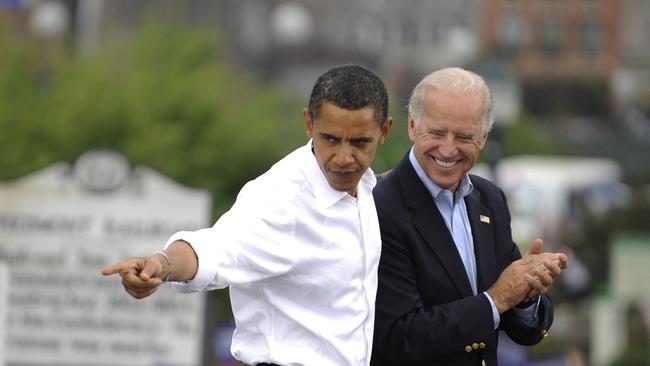
But the “global deep state”, as Trump sees it, is not without agency. Trump so far enjoys the supplication of foreigners. This will inevitably turn into resistance of some co-ordinated form.
In defiance of Trump’s tariffs and threats, Canadians are buying guns and moving back to the left. And global markets have an effective way of calling foul on economic radicalism; ask Liz Truss. Japan experimented with a form of protectionism not dissimilar to Trump’s; its return was three decades of stagnation. Turns out, the Japanese picked their own pockets.
The real story of Liberation Day, despite appearances to the contrary, was not economics. It was culture. Four years ago, Joe Biden was lauded for starting a neo-New Deal. It fizzled. Identity politics, inflation, Afghanistan, a fentanyl epidemic, cognitive decline, lawfare and the beginnings of Trump 2.0 – this is how the Biden interregnum, in the Age of Trump, will be remembered.
The confidence of his Liberation Day address was a rebuff to the cultural dislocations of not just the Biden years but of a generation of failed foreign and economic policies, of both parties.
The end of history in 1989 was meant to begin years of American dominance. Instead, China rose, the Twin Towers fell, a war on terror wasted US blood and treasure, and eight million Americans lost their homes in a global financial crisis. Trump came from this malaise. Now perhaps THE MALAISE IS DEAD, TRUMP IS ALIVE.
Timothy J. Lynch is professor of American politics at the University of Melbourne.


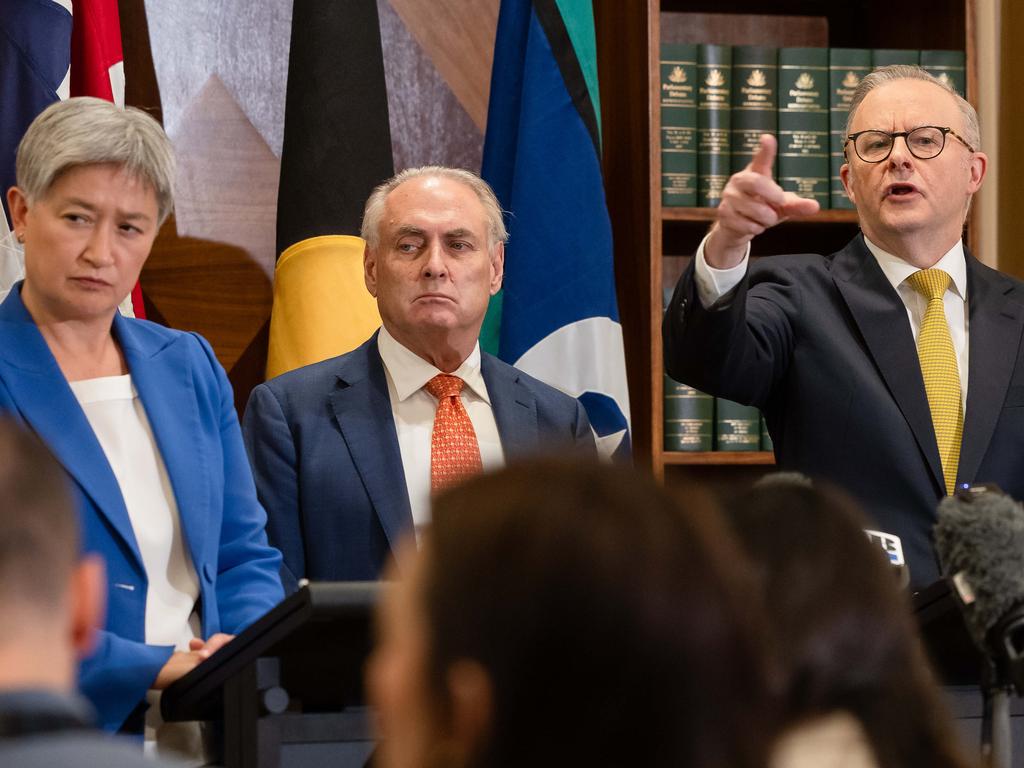
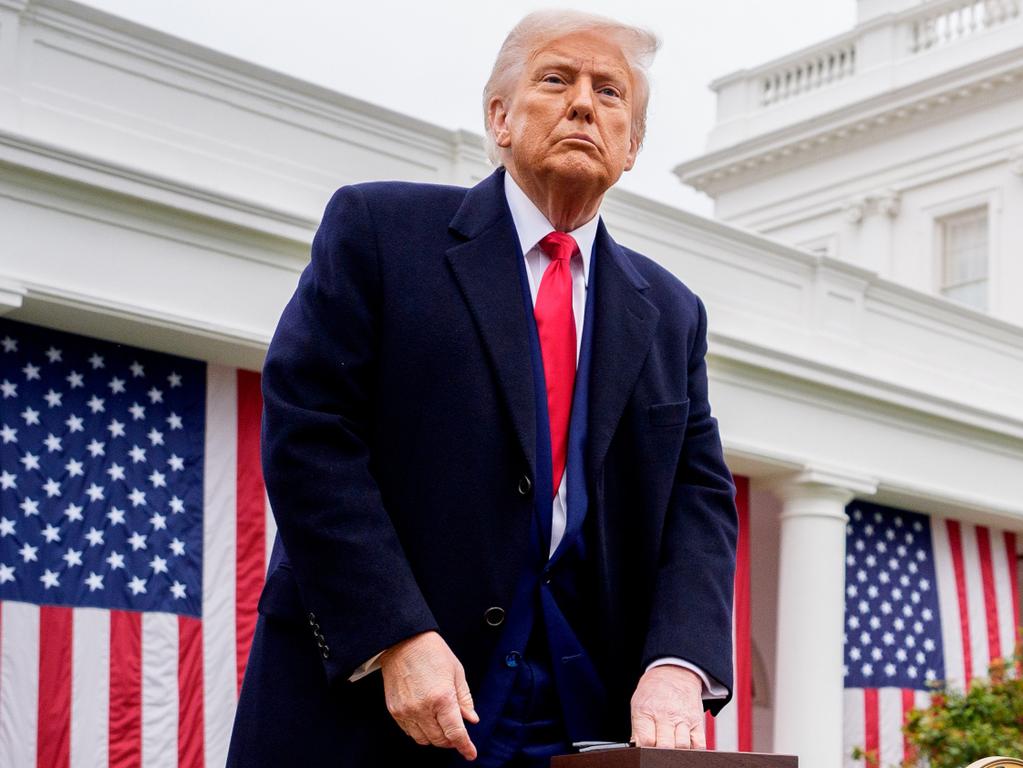

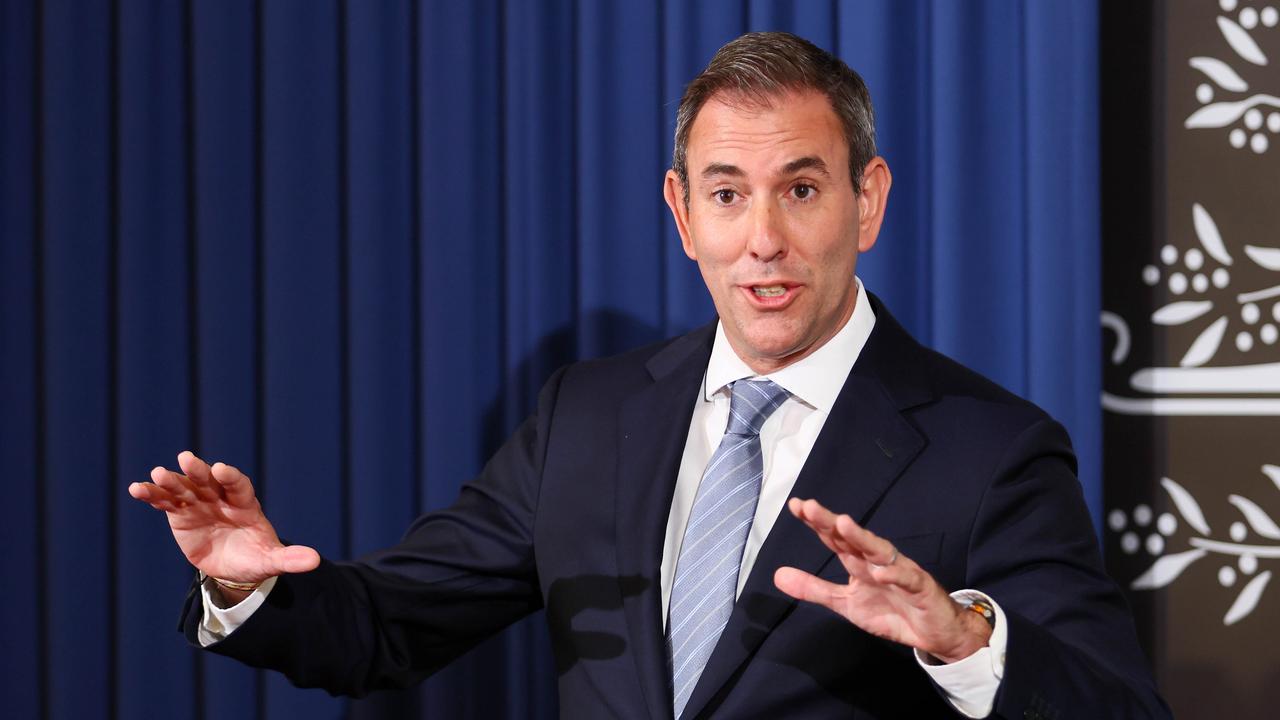
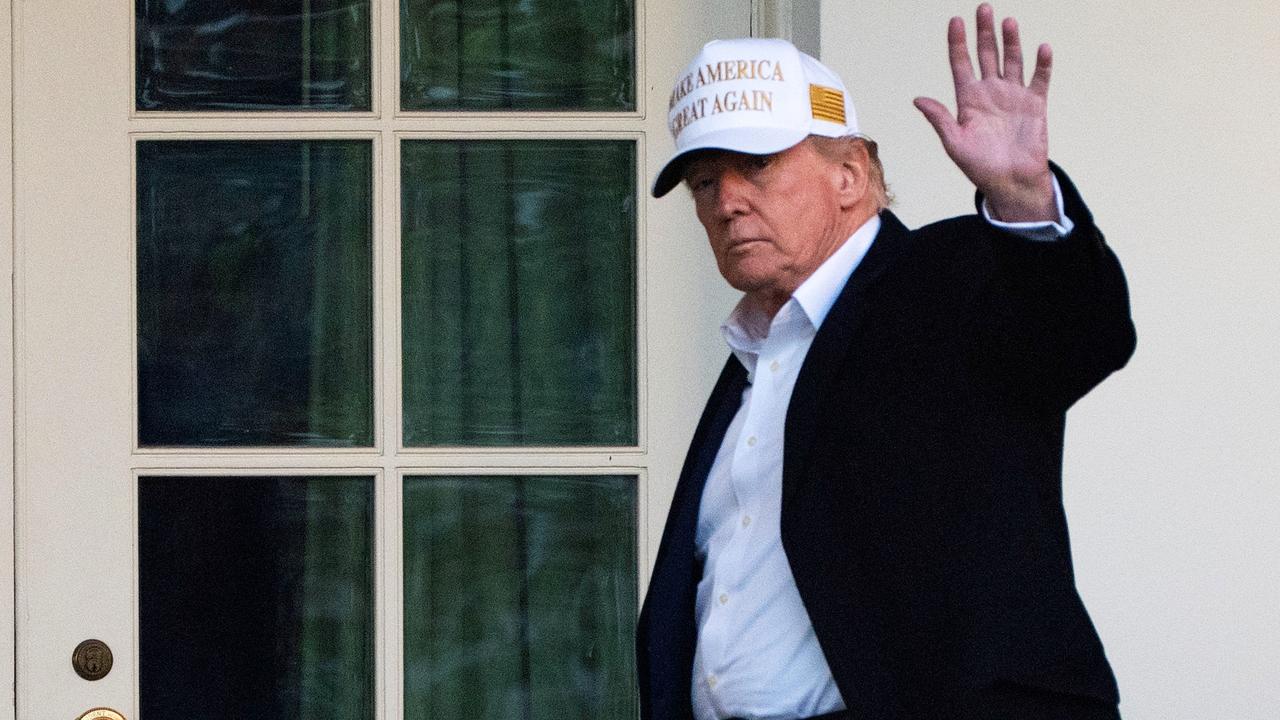
In 2012, Barack Obama won re-election with a bumper sticker: BIN LADEN IS DEAD, GENERAL MOTORS IS ALIVE. In the Rose Garden, on Liberation Day, Donald Trump changed it: THE DEMOCRATS ARE DEAD, GM IS ALIVE.